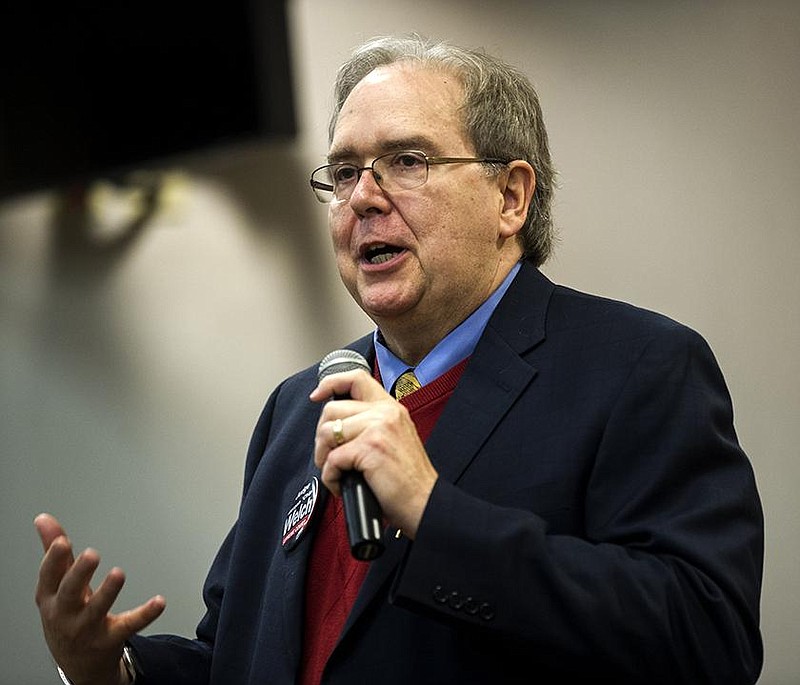For the second time in barely a year, a court has ruled that the Arkansas Legislature has illegally ceded control of the State Plant Board to private business interests, violating the state Constitution.
Pulaski County Circuit Judge Chip Welch reached his conclusions Tuesday, invalidating the board member selection process for the same reason the Arkansas Supreme Court did in May 2021, finding that lawmakers had given up too much power to business interests to staff the herbicide-regulating board.
The judge deemed the process to be an unconstitutional delegation of state power to private interests by violating Articles 2, 4 and 5 of the state Constitution. A written ruling is expected within the week.
Even before the high court ruled last year, the General Assembly had taken action to replace the selection process, which was in place for 104 years, with Act 361 of 2021. Through a nine-month-old lawsuit, Welch had been tasked with deciding whether that new selection process as set forth in Arkansas Code 2-16-206 was legal.
Welch's finding -- that the process still violates the separation of powers provision of the state constitution -- invalidates the membership of the nine-member majority appointed by Gov. Asa Hutchinson, but it will have little immediate effect because Welch stayed his findings until the Supreme Court can decide this case on appeal.
Rep. David Hillman, R-Almyra, who sponsored Act 361 of 2021, said Tuesday night he is not surprised by the circuit judge's ruling.
Hillman said he expects lawmakers will consider legislation tackling the issue in the 2023 regular session, but he isn't sure what the legislation will look like.
The board, created in 1917 to deal with a plant disease that threatened the state's apple industry, has 17 voting members. The nine-member majority is selected by eight trade groups. The new method established requires each group to nominate two candidates, one of whom is chosen by the governor for board membership, subject to Senate confirmation.
FarmVoice Inc., a non-profit farmer advocacy group, formed, at least in part, to push for the expanded use of the weedkiller dicamba, and three Mississippi County farmers -- Timothy Pirani and Adam Henard, both of Wilson, and Jarred Hopper of Blytheville -- sued in August to challenge the legality of the new board arrangement, which they said did not differ significantly from the selection process the Supreme Court struck down. Under that method, in use for more than 100 years, the trade groups directly named the nine-member majority.
According to FarmVoice attorney Grant Ballard, the new process gives "total control" of board leadership to the trade groups by forcing the governor to choose a candidate selected by groups who are unaccountable to the public, including the farmers subject to the board's regulatory authority.
"Our Legislature has placed public power in the hands of private industry ... and bound the governor," Ballard told the judge.
Representing the Plant Board was Assistant Attorney General Michael Fincher, who argued the new process provides greater oversight of the board, saying the governor can reject the trade groups' candidates and that the Senate is not required to confirm those candidates.
The trade groups are the Arkansas Plant Food Association, the Arkansas Pest Management Association Inc., the Arkansas Seed Dealers Association, the Arkansas Seed Growers Association, the Arkansas Oil Marketers Association, the Arkansas Crop Protection Association Inc., the Arkansas Agricultural Aviation Association and the Arkansas Forestry Association.
The groups were not part of the litigation.
Information for this article was contributed by Michael R. Wickline of the Arkansas Democrat-Gazette.

